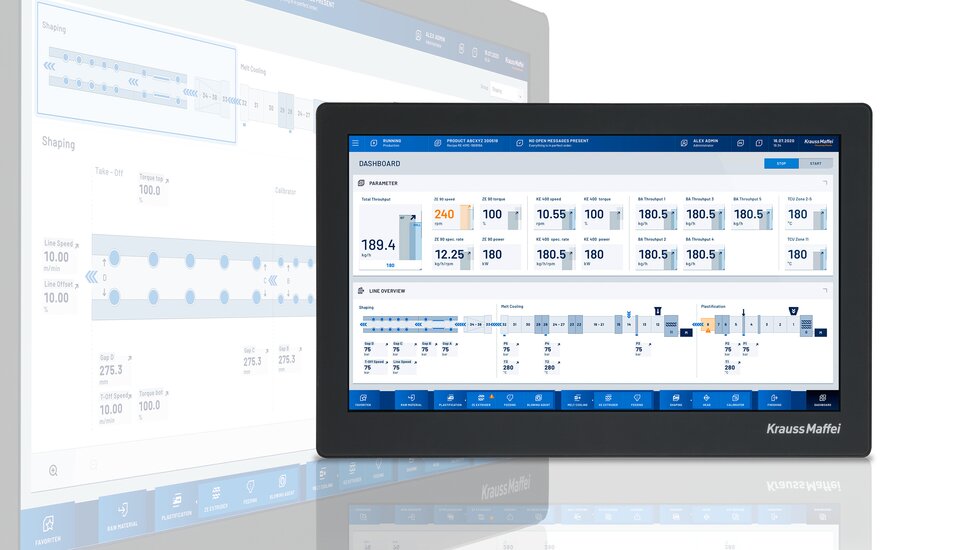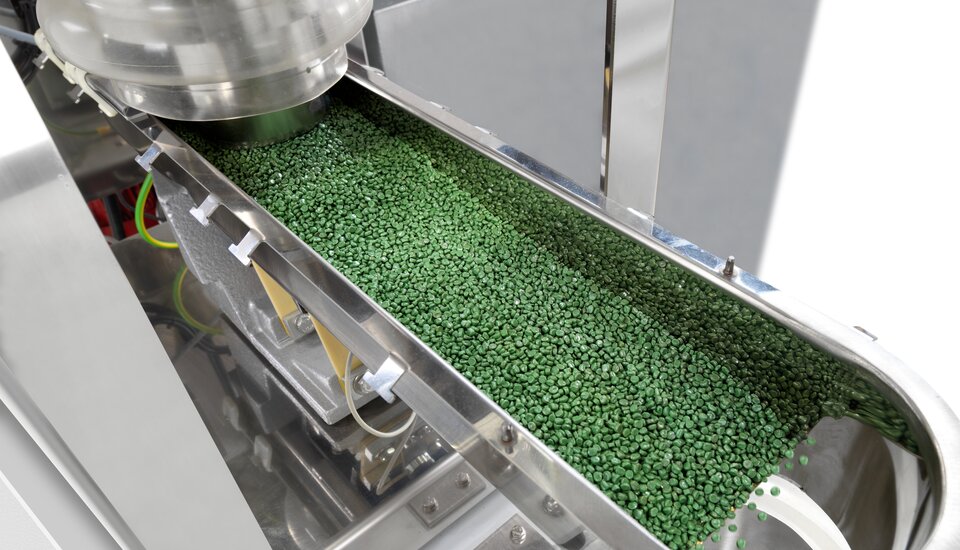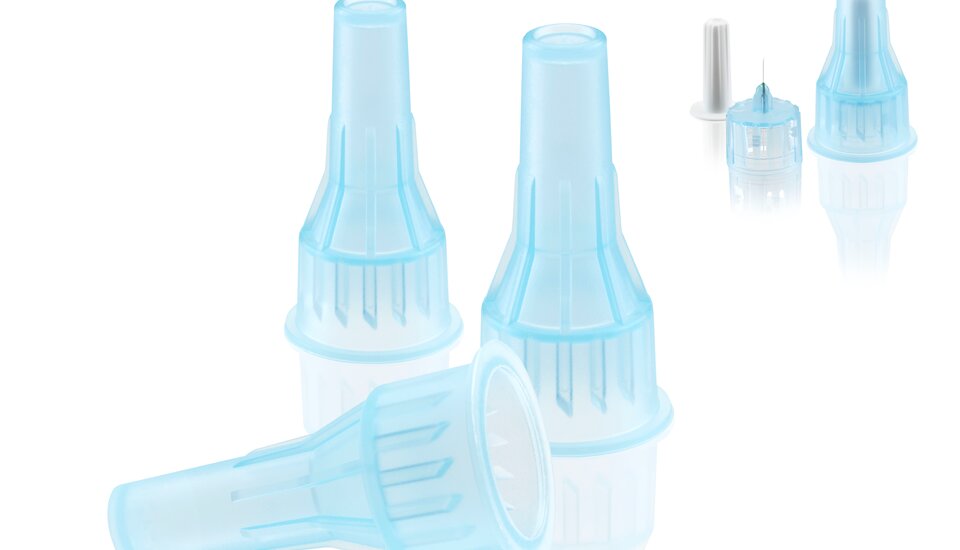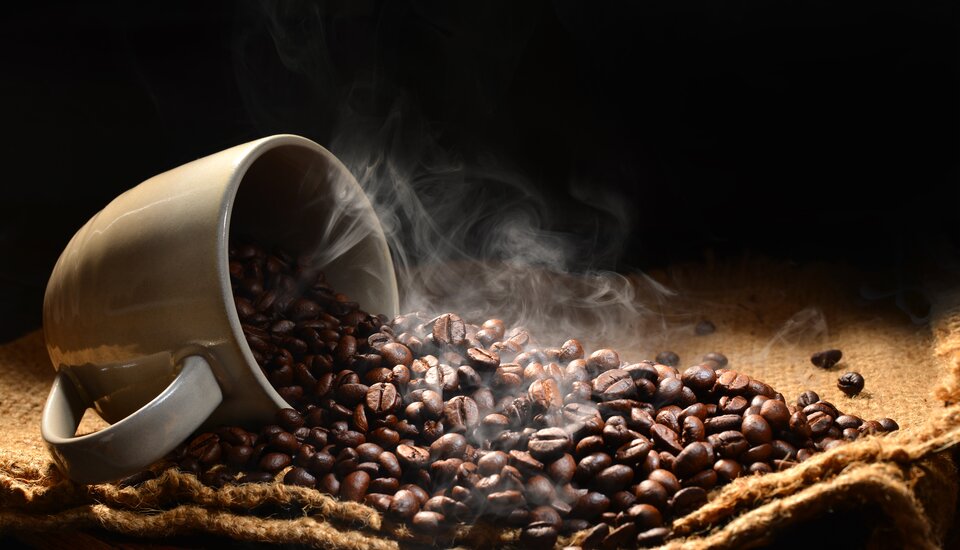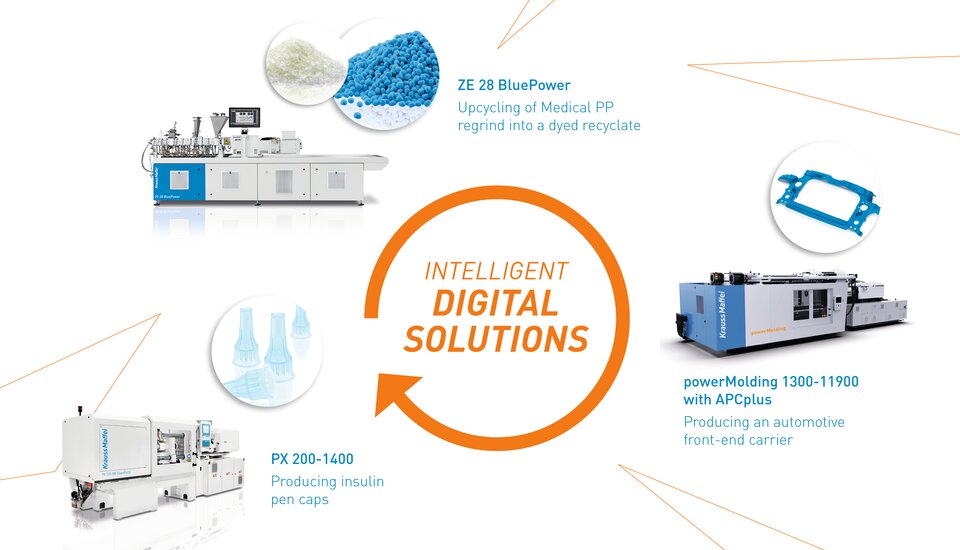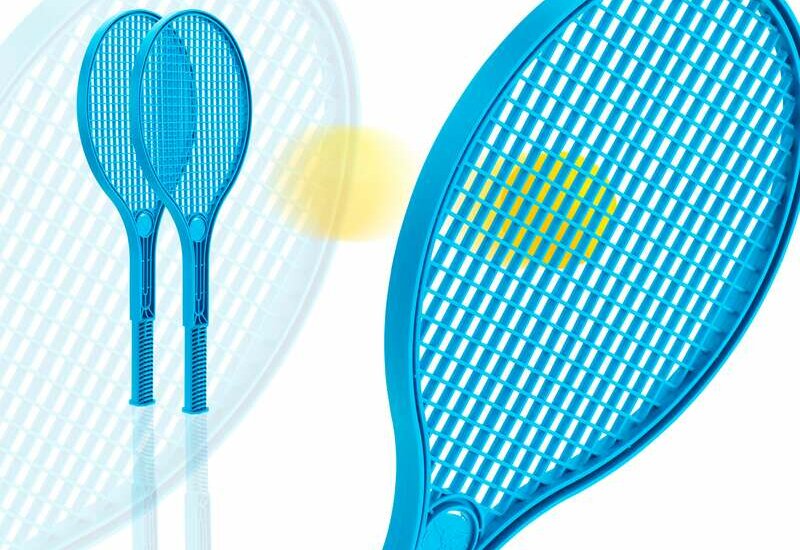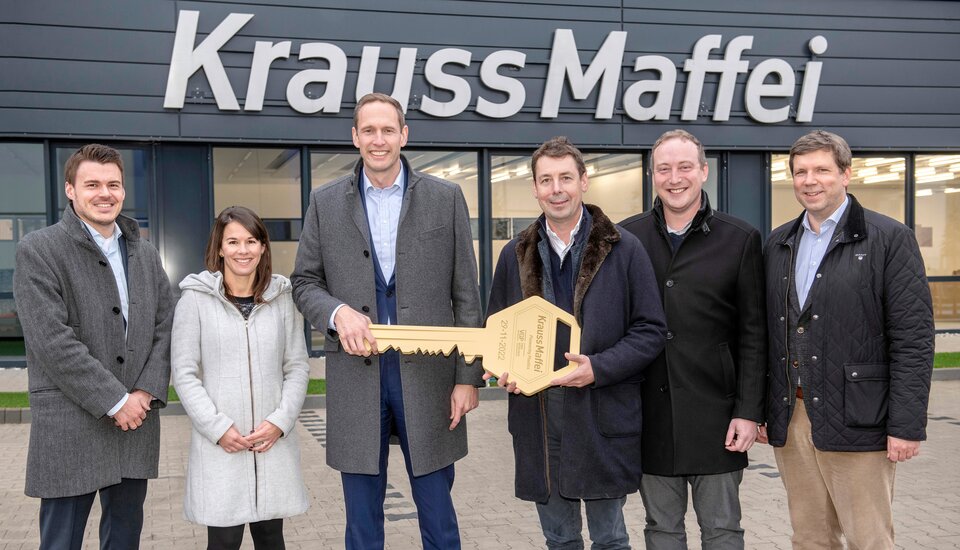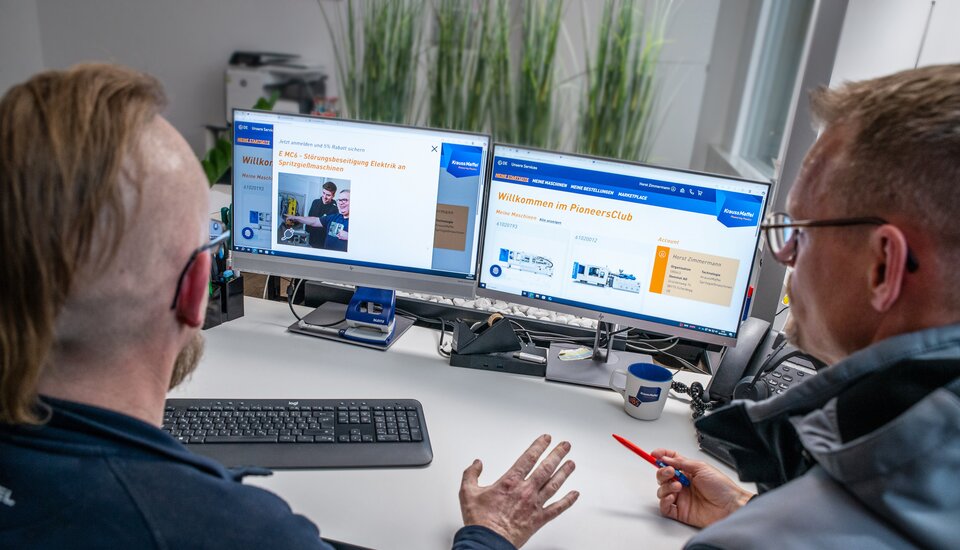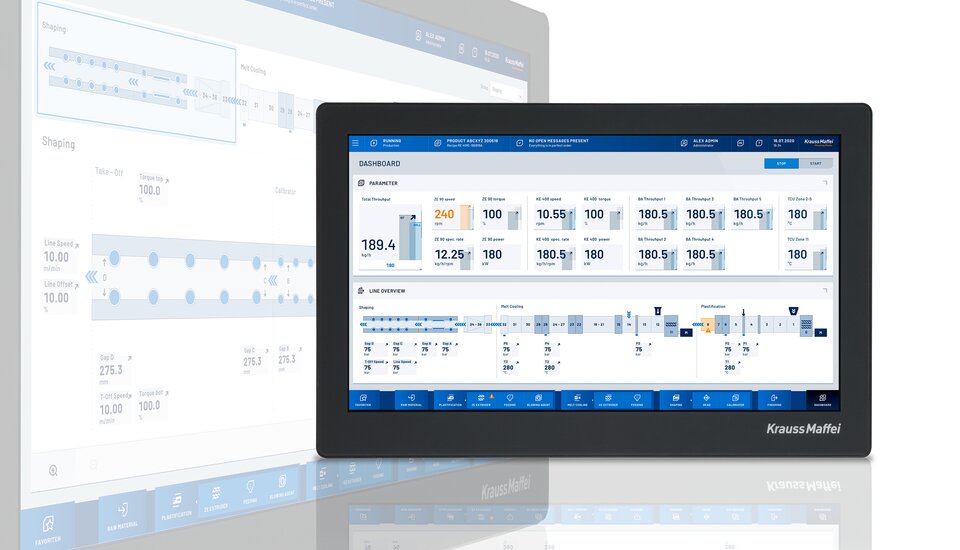
trendgineering
30 percent more plasticizing performance
| Petra Rehmet
Thanks to the new screw from KraussMaffei
The new universal screw HPS-Physical Foaming for MuCell applications impresses with a 30 percent higher plasticizing performance. KraussMaffei's intensive development work now enables the special advantages from physical foaming of thermopastes (MuCell) by saving costs, energy and resources. This multifaceted technology is trend-setting.
Lightweight solutions with a smaller CO2 footprint: In the effort to conserve resources, MuCell is being used more and more frequently and is a strong growth market.
By adding a physical blowing agent to the thermoplastic (usually nitrogen), it is possible to save significant material weight compared to compactly manufactured components. In addition, longer flow paths are possible for thin-walled components, and foaming results in low-warpage components.
Universal screw with versatile applications
The materials used for MuCell are diverse and often contain different proportions of fibers and fillers. In the HPS-Physical Foaming, KraussMaffei has responded to this by developing a screw that can be used universally and has a 30 percent higher plasticizing capacity.
For this purpose, all screw types available on the market were compared in extensive laboratory tests. A modular concept made it possible to combine the individual components by means of bolting so that a new screw did not have to be made each time. The focus was on the mixing and gas supply area, the center backflow barrier and the three-zone area.
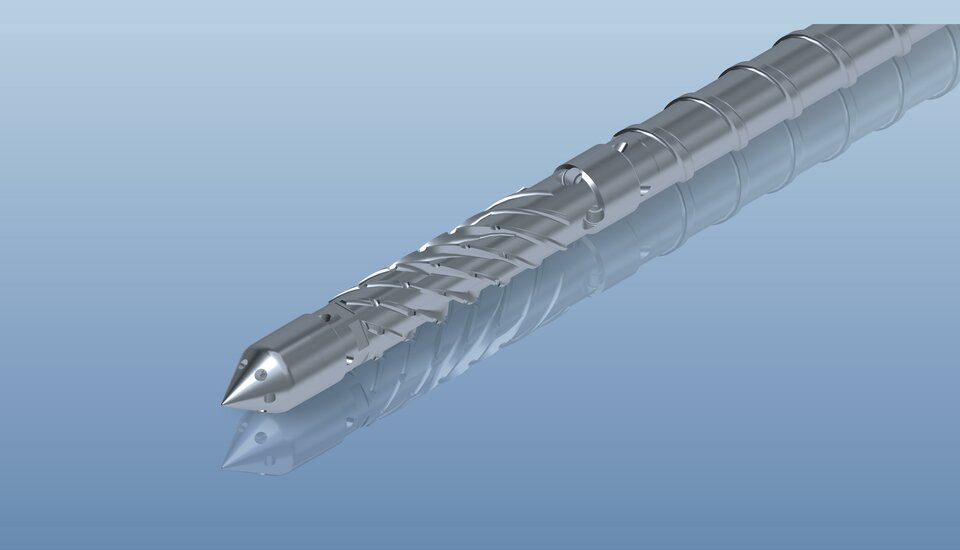
Universally applicable: The new HPS-Physical Foaming screw with a 30 percent improvement in plasticizing performance

More plasticizing performance with less wear at the same time
The three-zone area was able to be enlarged without loss of quality at the expense of the former and is now 17 times the diameter (previously 15D; mixing and gas supply area now 4D). This both increased the plasticizing performance and had a favorable effect on the wear behavior.
Up to now, larger screws (with a correspondingly higher investment) were usually used than the component weight would normally dictate in order to ensure complete homogenization of the melt before injecting the gas.
The middle non-return valve (M-RSP) closes at the end of the metering process, thereby separating the mixing and gas supply area from the three-zone section and preventing the melt from flowing back. This is the only way to keep the critical pressure above 33.9 bar and thus prevent foaming in the plasticizing unit.
Another task of the M-RSP is to ensure a constant shot weight. The developers' analyses showed that the most effective design of the M-RSP has a ball check valve. Here, too, the various materials used played a major role.
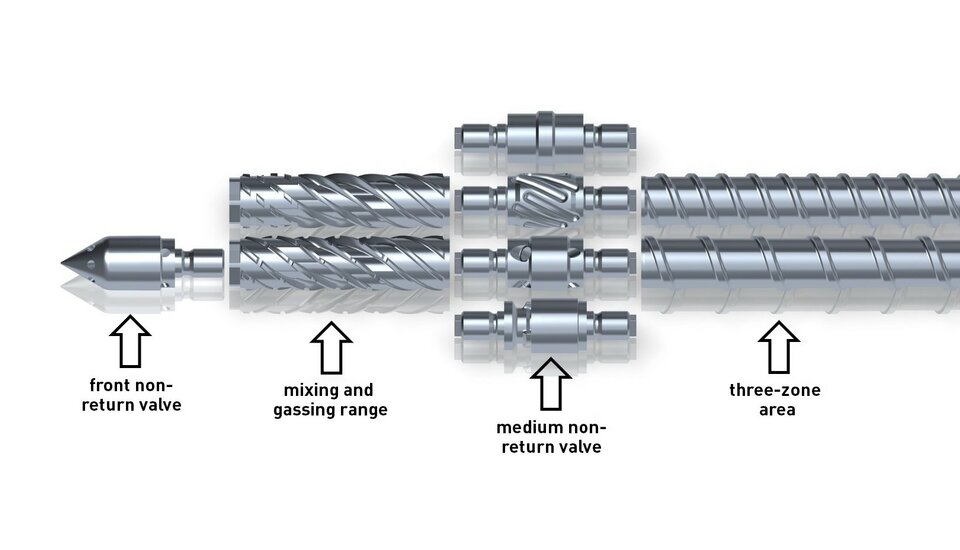
Modular screw concept. The individual functional areas of the screw can be combined as desired. The individual elements are joined by means of screw connections.

Trials with different fillers
The KraussMaffei team investigated the previously existing and the newly developed screw using PP with different flow indices (MFI 11 and MFI 44), with mineral filling, with glas fiber content of 20 and 30 (LGF) percent, and with ABS and PA6 GF 30. The plasticizing performance changes depending on the compound selected and the parameters set, such as dynamic pressure.
Since KraussMaffei's MuCell customers have a wide variety of applications worldwide, the universal screw had to reflect this diversity. The three-zone section was therefore designed with one thread (for PA6 GF30, two threads would be even better), and the M-RSP with ball check (for high-viscosity materials, a helical shear section is also possible).
The in-depth research effort yielded additional benefits beyond HPS-Physical Foaming. KraussMaffei now has a knowledge toolbox that makes it possible to develop screws specially adapted to a material—for customers who manufacture corresponding products constantly over a long period of time, for example. Here, too, the modular concept is helpful for quick tests.
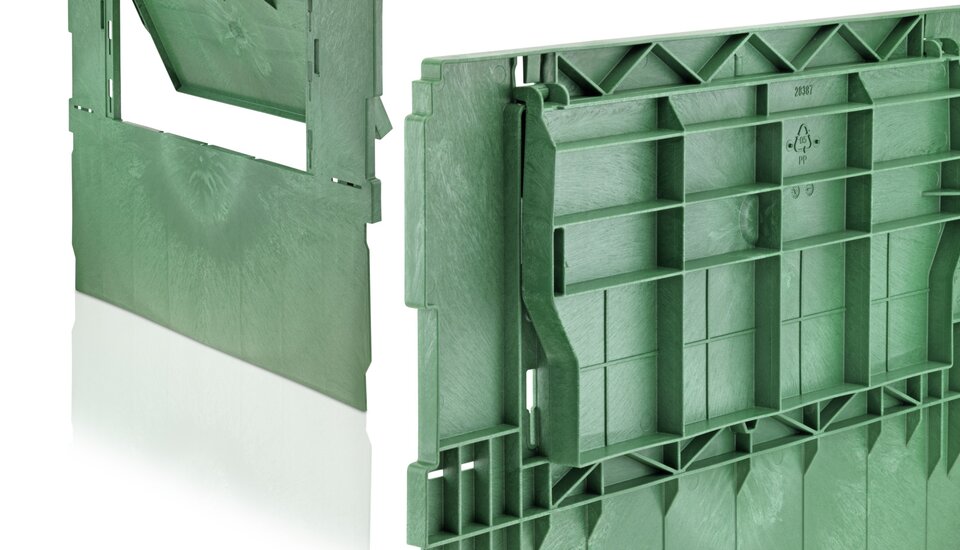
MuCell technology is a market with a promising future: The components are stable, lightweight and additionally thermally insulating due to the foam structure inside

Physical foam molding is and remains a technology of the future. Driven by the desire to save money, energy and resources, it is gaining in importance all the time. The new universal screw is a milestone in this respect.
Contact
andreas.handschke@kraussmaffei.com
